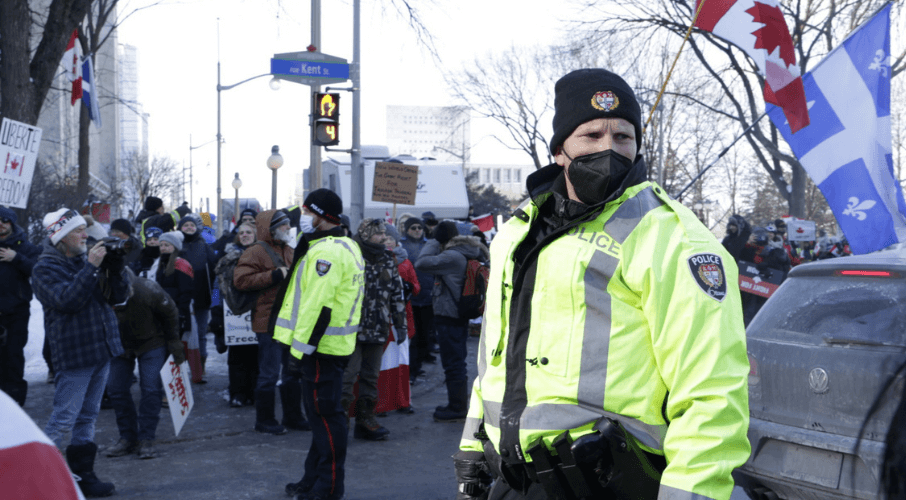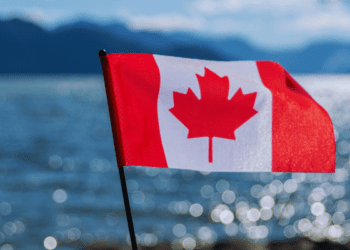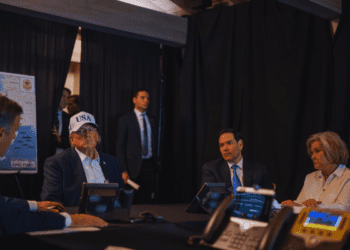This article originally appeared in the National Post.
By Ryan Alford, February 22, 2023
Commissioner Paul Rouleau concluded on Friday that the government had a reasonable basis to believe that its declaration of a public order emergency was lawful. That said, he noted that on this issue reasonable people can disagree, and that his determination is in no way binding on the judges of the Federal Court who will be soon be addressing the ongoing constitutional challenges addressing it.
Parliament will also need to consider this question in the near future, as the Special Joint Committee on the Declaration of the Emergency is due to present its own final report on March 31. Additionally, it will need to assess the recommendations of the Rouleau Commission, which include some breathtaking suggestions related to the policing of dissent in Canada, some of which would empower the government to use its emergency powers more liberally in the future.
The order-in-council in which the cabinet appointed Justice Rouleau the head the commission also directed him to examine and make recommendations related to issues that included “the impact, role and sources of misinformation and disinformation, including the use of social media.” On this rather controversial subject, Rouleau opined that while “there was no evidence of foreign disinformation campaigns related to the convoy itself . . . . Foreign-based disinformation campaigns on social media have been a persistent threat throughout the liberal democratic world for some time now.”
Accordingly, his recommendations noted with approval that “the federal government has engaged its initiatives to promote a healthy information ecosystem . . . which seeks to build citizen resilience to online disinformation, and that it is in the process of consultation regarding legislation to address harmful online content.”
When translated into plain English, Rouleau’s bland and soothing words become an endorsement of the most incendiary Liberal initiatives of recent memory, namely a plan in a forthcoming bill to censor the internet in the name of combatting “online harms.” This would be on top of Bill C-11, which would grant the CRTC extensive powers to censor social media in the name of promoting Canadian content.
George Washington University Professor Jonathan Turley did not mince words, calling Rouleau’s report “a disgraceful legitimation of a crackdown on free speech.”
Even more troubling than the report’s insipid endorsement of censorship is its manifest support for the government’s desire that it be much easier for it to declare public order emergencies in the future. Rouleau dutifully recited the reassuring litany that emergency powers should be exceptionally rare. However, his slipshod analysis of the threshold for declaring a public order emergency creates a dangerous precedent by lowering the bar to new depths.
Rouleau transformed the requirement of an actually existing threat to national security to the mere possibility of such a threat emerging. After all, he suggests, “a lone wolf actor, inspired by . . . the protests, might conduct an attack against soft targets . . . lone wolf actors are very difficult to detect and predict.” Further, he argued that “there was a legitimate concern that similar individuals or groups intent on violence might be present in Ottawa or at other protests.” It is very difficult to imagine how any future large-scale protest in the future would not constitute a threat to the security of Canada and would fail to meet this test.
After setting an ominous precedent for treating the statutory threshold of a public order emergency as a broad, open-ended, and ultimately political determination, Rouleau took seriously the cabinet’s direction to “make recommendations on . . . any necessary modernization of the (Emergencies) Act.” Rouleau concluded that “threats to Canada that constitute public order emergencies have evolved in the 35 years since Parliament chose to set the threshold.”
And so, he recommended that Parliament consider whether the economic harm caused by large-scale protests should be included in the act as another valid legal basis for the government to shut them down with its almost limitless emergency powers. When stated in the bureaucratic jargon into which Rouleau’s recommendations lapses at every critical passage, this would merely constitute “providing the government with the tools necessary to address these situations.”
When making this recommendation, Rouleau rejected the plain and direct advice not to do so provided by the foremost experts his research commission chose to invite.
Carleton University Professor Leah West noted during policy roundtables at the inquiry that “we have never labelled blockades and other non-violent but illegal means of obstructing critical infrastructure as terrorism. This country has a long history of protests along rail corridors and ports. While certainly these activities threaten trade and Canada’s economic interests, they do not fall within (the definition of a public order emergency) no matter how broadly one interprets it.” Summarizing her views, Professor West said: “I do not believe this Commission or the Freedom Convoy should form the factual basis for those reforms.”
While Commissioner Rouleau did not heed West’s wise words, it is not too late for Parliament to do so, by rejecting recommendations to change the threshold for invoking the Emergencies Act in ways that would be too expansive or overtly political.
Our legislators might also consider one recommendation from legal scholars that Rouleau chose not to include in his report: that in the future, the government should not have the power to choose the commissioner who sits in judgement of its actions. No one — and especially not the cabinet — should be allowed to select the judge of its own momentous cause, as this is directly contrary to the most elementary principles of natural justice.
Instead, Commissioner Rouleau’s role should be performed in the future by a jurist selected upon the unanimous assent of all the members of the Special Joint Committee on the Declaration of the Emergency, which must include Senators and Members of Parliament from all parties. Accountability and the rule of law demand nothing less.
Ryan Alford is a professor in the Bora Laskin Faculty of Law at Lakehead University and a senior fellow at the Macdonald-Laurier Institute. He was granted joint standing with the Canadian Constitution Foundation as a party before the Public Order Emergency Commission.






